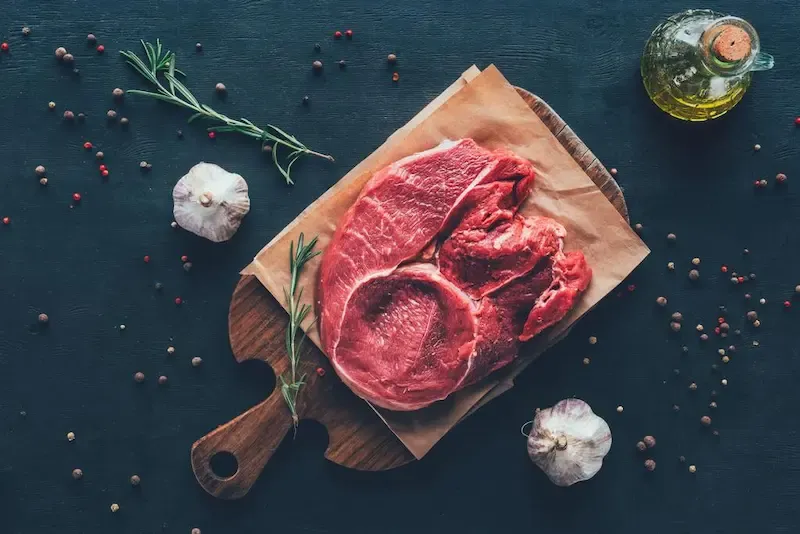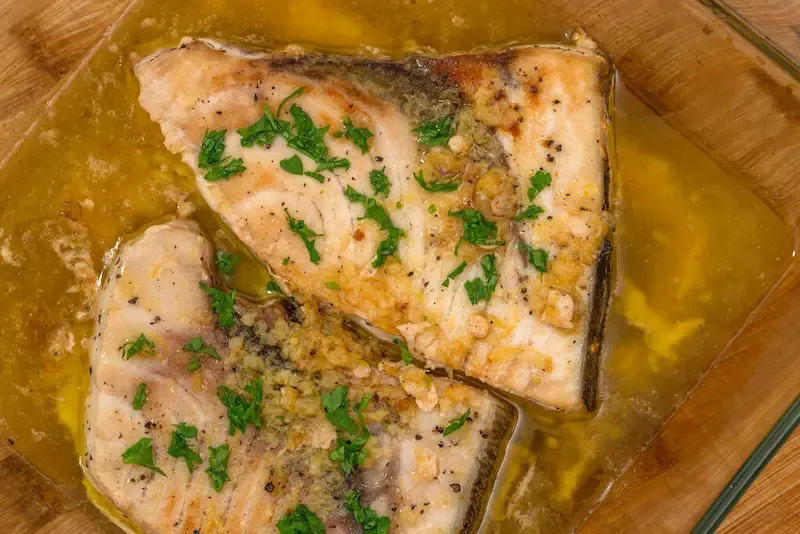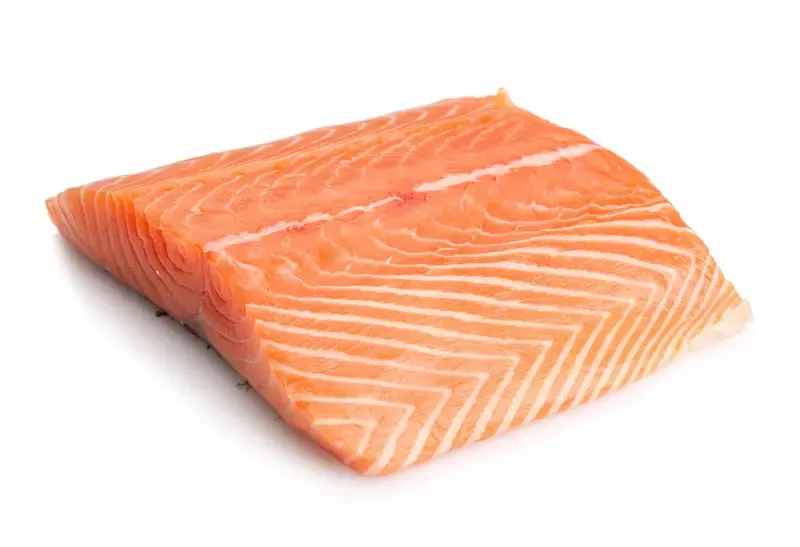Importance of a healthy diet during pregnancy
Maintaining a healthy diet and eating healthy foods during pregnancy is vital for the well-being of both the mother and her developing baby. A balanced and nutritious diet plays a critical role in ensuring the body receives essential nutrients necessary for fetal growth and development while also minimizing the risk of complications.
During pregnancy, a healthy diet provides key nutrients such as folic acid, iron, calcium, and omega-3 fatty acids, which are fundamental for the baby’s brain, bone, and overall growth. Folic acid, predominantly found in foods like leafy greens and fortified cereals, is particularly crucial as it helps prevent birth defects affecting the baby’s brain and spine. Iron is indispensable for the production of red blood cells and the transportation of oxygen, thus reducing the risk of anemia. Calcium is essential for the baby’s bone and teeth development, sourced from dairy products and leafy greens. Omega-3 fatty acids, primarily found in fish and flaxseeds, support brain development and enhance the baby’s cognitive abilities.
However, excessive weight gain during pregnancy can lead to various complications, including gestational diabetes, high blood pressure, and preeclampsia, which pose risks to both the mother and the baby. Moreover, excessive weight gain can contribute to difficulties during labor and delivery and increase the likelihood of retaining weight postpartum.
Seeking guidance from healthcare professionals during pregnancy is highly advantageous. They can offer personalized dietary advice tailored to the mother’s individual needs and the specific stage of pregnancy. Healthcare professionals play a crucial role in monitoring weight gain and providing recommendations on portion control and the intake of essential nutrients. By following their guidance, mothers can ensure healthy weight gain and minimize the risk of complications throughout pregnancy.
Here are 4 Foods You Should Avoid During Pregnancy…
Raw Meat
Raw meat is uncooked animal flesh, including beef, pork, chicken, lamb, and fish. Although cooking meat is typical for safety and taste, some culinary practices and diets involve consuming it raw. Whether as a cultural tradition or dietary choice, handling and preparing raw meat require careful attention to prevent foodborne illnesses. Individuals should be aware of the potential benefits and risks associated with raw meat consumption to ensure a safe culinary experience.

Risks of consuming raw meat during pregnancy
Consuming raw meat during pregnancy can expose both the mother and the developing fetus to a variety of harmful bacteria, such as Salmonella and E. coli, which can pose significant risks to their health. These bacteria are commonly found in raw or undercooked meats, including beef, pork, poultry, and seafood.
Salmonella is a type of bacteria that can cause food poisoning. Symptoms of Salmonella infection include diarrhea, stomach cramps, fever, and vomiting. If a pregnant woman becomes infected with Salmonella, it can lead to complications like dehydration, which can be dangerous for both the mother and the fetus.
E. coli is another bacteria commonly found in raw meat. It can cause severe illnesses, such as bloody diarrhea, abdominal pain, and vomiting. In pregnant women, E. coli infection can lead to more serious complications like miscarriage, preterm labor, or even stillbirth. The developing fetus is particularly vulnerable to these bacteria, as they can cause damage to the baby’s developing organs and immune system.
Consuming raw or undercooked meat during pregnancy also increases the risk of other infections, such as toxoplasmosis and listeriosis. Both of these infections can have severe consequences for the health of the fetus, including miscarriage, preterm birth, and even birth defects.
To protect the health of the mother and the developing fetus, it is recommended that pregnant women avoid consuming raw or undercooked meat. Instead, meat should be cooked thoroughly to kill any potential bacteria. It is also important to practice good food hygiene, such as washing hands after handling raw meat and using separate utensils and cutting boards for raw and cooked meats. By taking these precautions, pregnant women can reduce the risks associated with consuming raw meat and ensure a healthy pregnancy.
Safe alternatives for protein sources
During pregnancy, it is important to ensure a healthy intake of protein while considering the potential risks associated with consuming raw seafood and undercooked eggs. To maintain a safe and balanced diet, it is recommended to opt for fully-cooked seafood and eggs.
There are several safe alternatives for protein sources that provide the necessary nutrients for both the mother and the developing baby. Lean meats, such as chicken, turkey, and beef, are excellent sources of protein that can be consumed during pregnancy. These meats should be cooked thoroughly to eliminate any potential bacteria.
Poultry, such as skinless chicken or turkey, is another safe option that provides high-quality protein. Beans and lentils are plant-based protein sources that are safe to consume during pregnancy. These legumes are rich in fiber and other essential nutrients, making them an excellent choice for expecting mothers.
Tofu, a popular protein alternative for vegetarians, is also a safe option during pregnancy. This plant-based product is made from soybeans and provides a good amount of protein.
It is crucial to prioritize food safety during pregnancy to reduce the risk of bacterial infections. By choosing fully-cooked seafood and eggs, and exploring alternatives like lean meats, poultry, beans, lentils, and tofu, expecting mothers can ensure a healthy protein intake while minimizing potential health concerns.
Soft Cheeses
Soft cheeses, known for their creamy texture, are made with high moisture content and undergo a shorter aging process than firmer cheeses. They offer diverse flavors and forms, appealing to cheese enthusiasts. Varieties like Brie, Camembert, Goat Cheese, and Feta provide versatile taste experiences, whether enjoyed alone, spread on bread or crackers, or incorporated into recipes.

Soft cheeses during pregnancy can harbor Listeria monocytogenes, a bacteria causing listeriosis, posing risks like flu-like symptoms and severe complications such as miscarriage or premature labor. Unpasteurized varieties are particularly risky, as pasteurization eliminates harmful bacteria. Opting for pasteurized options, labeled as such, is crucial to mitigate the risk of listeriosis.
Common soft cheeses like Brie, Camembert, feta, blue cheese, and queso blanco should be avoided if not labeled as pasteurized. Prioritizing pasteurized cheeses is essential to ensure a safe and healthy pregnancy.
Pasteurized cheese options
There’s a diverse selection of pasteurized cheeses available, ensuring safety through the elimination of harmful bacteria and pathogens. Popular options include American, Colby, cheddar, Monterey Jack, pepper jack, Colby Jack, mozzarella, Muenster, provolone, Swiss, Gouda, Parmesan, Romano, cottage cheese, cream cheese, and ricotta. Choosing cheeses labeled as “pasteurized” is essential, as pasteurization eliminates harmful microorganisms, reducing the risk of foodborne illnesses. These safe pasteurized cheese options can typically be found in the standard dairy cooler section of grocery stores.
Soft cheeses like cottage cheese, cream cheese, and ricotta, made from pasteurized milk, are also available in this section. Selecting pasteurized cheeses ensures both safety and enjoyment, catering to various taste preferences while minimizing the risk of foodborne illnesses.
High-Mercury Fish
While fish is generally considered a nutritious option due to its abundance of omega-3 fatty acids, vitamins, and minerals, not all types of fish are equally healthy. Some species may contain elevated levels of mercury, a harmful heavy metal. Mercury poses significant health risks, especially for vulnerable groups like pregnant women.

Health risks associated with high-mercury fish consumption during pregnancy
Consuming high-mercury fish during pregnancy can have serious consequences for both the mother and the developing fetus. Mercury, a toxic element, can impair the brain, hearing, and vision of the unborn baby. It easily passes through the placenta and accumulates in the fetus, potentially causing cognitive issues, reduced IQ, and learning disabilities. It can also affect hearing and vision development, leading to impairments.
To reduce mercury exposure, pregnant women should avoid high-mercury fish like shark, swordfish, king mackerel, Gulf tilefish, and orange roughy. These fish accumulate more mercury due to their size, longevity, and place in the food chain. While other fish are generally safe, it’s advised to limit intake of albacore tuna, grouper, snapper, wild striped bass, and halibut to one 6-ounce serving per week due to moderate mercury levels.
Pregnant women should be cautious about consuming high-mercury fish as well as raw fish to safeguard the healthy development of their baby’s brain, hearing, and vision.
List of high-mercury fish to avoid
To ensure a healthy pregnancy, it is recommended to completely avoid the following seven types of fish that contain high levels of mercury:
1. Shark: Shark fish are known to have high levels of mercury, making it crucial to steer clear from consuming them during pregnancy.
2. Swordfish: Similar to shark fish, swordfish is also a type of fish that should be avoided due to its elevated mercury levels.
3. King mackerel: King mackerel, a popular fish in certain parts of the world, has significant mercury content, making it unsuitable for consumption during pregnancy.
4. Tilefish: Found in the Gulf of Mexico, tilefish is another fish that pregnant women should stay away from, as it contains high levels of mercury.
5. Marlin: Known for its large size, marlin fish should be completely avoided during pregnancy due to its high mercury content.
6. Orange roughy: Orange roughy is a deep-sea fish that tends to have high levels of mercury, posing risks to the baby’s health.
7. Bigeye tuna: While some types of tuna are generally safe in moderation, bigeye tuna specifically contains high levels of mercury, hence should be avoided during pregnancy.
By being mindful of these high-mercury fish types, pregnant women can ensure the safety and well-being of both themselves and their unborn child, making informed choices when it comes to their diet.
Safe seafood options for pregnant women
Safe seafood options for pregnant women include fish that are low in mercury and high in omega-3 fatty acids. Some recommended choices are:

1. Salmon: Salmon is a great option for pregnant women as it is low in mercury and rich in omega-3 fatty acids. Omega-3 fatty acids are essential for the development of the baby’s brain and eyes.
2. Trout: Trout is another low mercury fish that provides omega-3 fatty acids. It is a nutritious choice for pregnant women as it contains high levels of protein, vitamins, and minerals.
3. Sardines: Sardines are small fish that are packed with omega-3 fatty acids. They are also low in mercury and are an excellent source of protein and calcium.
4. Anchovies: Anchovies are low in mercury and high in omega-3 fatty acids. They are also a good source of calcium, iron, and vitamins.
Incorporating these seafood options into a healthy diet during pregnancy is important for several reasons. Omega-3 fatty acids, specifically DHA, play a crucial role in the development of the baby’s brain and eyesight. Including these fatty acids in the diet can help promote healthy cognitive development in the baby. Additionally, seafood provides essential nutrients like protein, vitamins, and minerals that support the overall well-being of both the mother and baby. However, it is important to note that pregnant women should still consume seafood in moderation and avoid high-mercury fish such as shark, tilefish, king mackerel, and swordfish. By choosing low mercury fish options, pregnant women can enjoy the benefits of seafood while ensuring the safety and health of themselves and their baby.
Deli Meats
Deli meats, also known as lunch meats or cold cuts, are a staple in countless households. These pre-cooked and ready-to-eat meats are widely enjoyed in sandwiches, salads, and various other recipes. Whether it be ham, turkey, roast beef, or salami, deli meats offer convenience, versatility, and an array of flavors.

Concerns about deli meats during pregnancy
Deli meats, including ham, turkey, salami, and bologna, are popular choices for sandwiches and salads. However, these processed meats can harbor harmful bacteria, such as Listeria monocytogenes, which can cause a severe infection known as listeriosis. This infection can be detrimental to the health of both the mother and the unborn baby.
Listeria monocytogenes is relatively rare but can have serious consequences for pregnant women. The bacteria can cross the placenta and infect the fetus, potentially leading to miscarriage, stillbirth, or preterm labor. Also, listeriosis can also result in serious health issues for the baby, including respiratory distress, meningitis, or even death. This is why obstetricians and nutritionists are particularly cautious when it comes to the consumption of deli meats during pregnancy.
To reduce the risk of listeriosis, pregnant women are advised to avoid eating raw or undercooked deli meats. It is recommended to heat deli meats until they are steaming hot, as this kills any potential bacteria. If you prefer to enjoy your deli meats cold, it is recommended to freeze them for a few days before consuming. Freezing deli meats reduces the growth of Listeria and minimizes the risk of infection.
Another precautionary measure to take is to scrutinize the labels of packaged deli meats. Look for phrases such as “preevayned” or “ready to eat” on the package, as this indicates that the deli meat has already been cooked and is safe to consume. However, it is important to note that even if the deli meat appears cooked, there is still a possibility of cross-contamination during the slicing process. Therefore, it’s crucial to handle deli meats with care and ensure proper hygiene practices to prevent bacterial contamination.
Additionally, pregnant women should also be cautious when it comes to consuming other refrigerated, ready-to-eat foods, such as hot dogs, pâté, and meat spreads as they may also harbor Listeria. It is advisable to avoid these products unless they have been heated to a safe temperature. It is also recommended to thoroughly wash fruits and vegetables before consumption, as they can potentially come into contact with contaminated deli meats during preparation.
Conclusion
In conclusion, maintaining a healthy diet during pregnancy is paramount for the well-being of both the mother and her developing baby. A balanced and nutritious diet provides essential nutrients crucial for fetal growth and development, while minimizing the risk of complications. Key nutrients like folic acid, iron, calcium, and omega-3 fatty acids play pivotal roles in supporting the baby’s brain, bone, and overall growth. However, it’s essential for pregnant women to be mindful of certain dietary risks, such as excessive weight gain and the consumption of potentially harmful foods like raw meat, high-mercury fish, soft cheeses, and deli meats.
Seeking guidance from healthcare professionals during pregnancy is highly beneficial, as they can provide personalized dietary advice tailored to individual needs and stages of pregnancy. By following their recommendations, mothers can ensure healthy weight gain and minimize the risk of complications throughout pregnancy. Additionally, being aware of food safety practices and making informed choices about food consumption can significantly contribute to a safe and healthy pregnancy journey.





